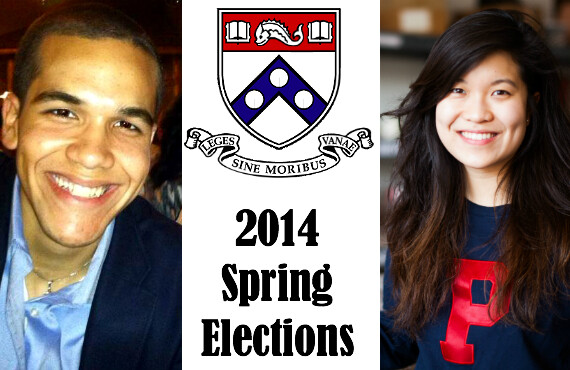Penn Undergraduate Assembly Elections Provide Lessons in Leadership
Every vote counts.
Each spring, the top leadership positions within the University of Pennsylvania’s Undergraduate Assembly, are up for election.
This year the polls opened Monday, March 24, at midnight with all full-time, non-senior undergraduates able to vote online through Friday, March 28, at 5 p.m.
Junior Frederick Ding, vice chair for elections of the Nominations and Elections Committee, says the UA plays an important part in the overall college experience by funding, services and advocacy efforts. It is one of six branches that make up the Penn Student Government, and the Nominations and Elections Committee serves as a neutral independent body in charge of elections.
“Each year, the Undergraduate Assembly delegates and distributes a budget of more than $2 million among the six branches of student government, the Medical Emergency Response Team, New Student Orientation and other programs,” Ding says. “More than half of the budget is allocated to the Student Activities Council, which funds hundreds of student groups, including cultural organizations and competitive teams.”
In addition, the UA also has the power to submit recommendations to the University president, provost and trustees and to request information from the administration.
A bioengineering major from Richmond Hill, Ontario, Ding says voting is an essential way to guide the direction of student government and its agenda, composition and culture for the next academic year.
“This year’s presidential candidates come from vastly different backgrounds and can be incredible voices for their constituencies,” Ding says.
Presidential candidate Joyce Kim of Allen, Texas, is a junior political science major. She decided to run to build stronger communications between students and administrators. Her running mate is junior Josh Chilcote, a history major from Crivitz, Wisc., whose academic focus is on economic history.
“I want to make the UA a more relevant vehicle for change on campus,” Kim says.
Presidential candidate Gabe Delaney of New York City is also a junior political science major. He decided to run because he has grown frustrated with what he views as a lack of student engagement with the student government. Delaney’s running mate is Julie Bittar, a sophomore health and societies major from Terre Haute, Ind.
“The relevance of our body is diminished when we do not make an effort to include all student groups and individuals in the conversation,” Delaney says.
Some of Delaney’s priorities include establishing a “Religious Diversity Week,” and redefining religion as a critical aspect of a student’s identity. He also wants to raise awareness of cultural and socio-economic diversity of international students as well as the financial challenges faced by some lesbian, gay, bisexual, transgender or questioning students if they are disowned by their families.
Kim’s focus includes looking for additional ways to allow students to express diverse political and religious views, to educate students about alternate funding sources and to create a student voice within Student Registration and Financial Services. She also wants to strengthen international cultural integration and mental health services and to incorporate mandatory New Student Orientation training about sexual violence prevention.
“Our agenda for the next year,” says Kim “is set directly by the needs and voices of our peers.”
“Aside from direct democracy by way of a referendum, this is the best chance for next year’s undergraduates to have a voice and select who to voice their opinions,” Ding says.
Voters will also choose members of the Class Boards.
The Class Boards “provide social programming that instills a sense of class and school spirit, unity and pride,” Ding adds.








